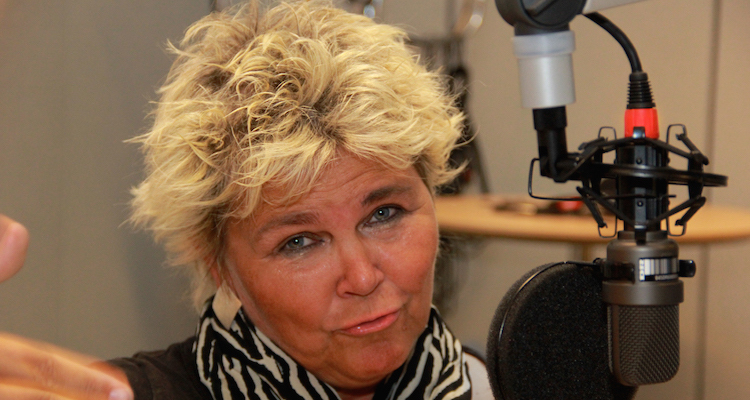Listen Now
Birgitte Jallov is an independent communication and media specialist and the founder of Empowerhouse. Since 1980, she has worked with community radio for development, empowerment and social change. This includes the development of a series of special tools, organization forms and methodologies for community organizations to enact change in more than 60 countries and 250 assignments over the years. You can connect with Birgitte here: https://twitter.com/birgittejallov https://www.linkedin.com/in/birgittejallov
IN TOR 062 YOU’LL LEARN ABOUT:
- Birgette’s upbringing in civil rights and women’s issues, and the perfect storm to highlight the importance of community radio.
- Her defense of radio for community discussion and organization.
- The many experiences of radio for change, most of them with great outcomes such as healthcare and civil participation, and one very tragic exception.
- Birgette’s view of a future in which radio is “still worth fighting for.”
OUR CONVERSATION INCLUDES THE FOLLOWING:
Organizations
- Empowerhouse http://empowerhouse.dk
- Oxfam
- Unesco
- 1985 World Conference on Women http://www.5wwc.org/conference_background/1985_WCW.html
- Community Media Forum Europe (CMFE) http://coe-ngo.org/ingo/community-media-forum-europe
- Rwanda’s Radio Télévision Libre des Mille Collines (RTLMC)
Topics
- Community radio
- Rights and legal status of community media or radio around the world
- Cholera, prevention through water chlorination
- State controlled or restricted media
- Civil rights
- Women’s rights
Places
- Denmark
- Central America
- South America
- Zimbabwe
- Mozambique
- Laos
- Hungary
- Cyprus
- Germany
- Austria
- US
- Rwanda
- Burundi
EPISODE CRIB NOTES
Empowerhouse Stemming from Birgette’s community work on radio. Community radio stations, publications. Empower community, use it as a platform to discuss local issues. “What is the enabling environment like?” What is the level of steps or procedures needed to launch a radio station? It is forbidden in Zimbabwe for instance. Europe in the ’70s spearheaded a fight for the freedom of community radio assembly. Is radio still relevant anyway? “I wonder that from time to time.” Constant question and feedback on how and when. The answer is still: massively. It is tied to oral traditions in communities. Are radios still easy to find? It does not have to be a radio, a phone is ideal, anything that transmits live audio data. Making it relevant Mozambique: middle ’90s movement in radio. Every year during rain season, government officials tried everything to get their people to add chlorine to the water to prevent cholera. Only with radio local officials, health care workers and inhabitants got the chance to talk, discuss and promote the practice. Since then there are no deaths for cholera. Laos: communist nation, state-controlled media. Local communities negotiated to have their own broadcast, with strong impact in healthcare, it helped women to trust vaccines and health officials to give advice and take care of children. Radio funding Communities usually pool their resources, especially in places where launch is easier. Many experiences in Latin America of community funded and led radio stations. Donors like Oxfam and Unesco have provided funding, but the norm is mixed funding. Birgette getting on the wave Part of women’s movement and civil rights since childhood. European movements were looped on each other, it help everyone move forward and it pushed them to look outside. ’80 Birgette starts to attend the Women’s Conference. ’85 Nairobi’s Women’s Conference. Lots of need she saw she could help fulfill. The movement kept developing. Developed community radio? Birgette just joined the board of Community Media Forum Europe (CMFE). Countries like Hungary have severe restrictions in the media markets. In Cyprus, new laws on community media are being disputed. In Germany and Austria, community radio is powerful, they are important actors, as it is in the U.S. Fundamental changes In places with restrictions, communities are organizing for media freedom. So far they use alternative communication tools, like SMS. There is still a need for radio. “It is still worth fighting for.“ Failures from radio ’94 Rwanda’s Radio Télévision Libre des Mille Collines (RTLMC), used for racist propaganda during the genocide. Encouraged racial hostilities. Burundi: community stations actually run by politicians. Cases of private interest sponsorships, bribes and corruption. It’s important to know how to protect yourself and your community for media, and to protect the media itself. Programmatic change in the future Technology will keep bringing radical changes. People don’t have to tune at the same time, may or may not be a good thing. Phones provide more expedited two-way conversations. An open field for research and exploration on narrative and original voices. Advice “Close your eyes, find out what makes you really happy.“ Test waters, volunteer, get experience quickly as you find focus. Birgette’s trifecta for people to hire: passion, community, respect.Please share, participate and leave feedback below!
If you have any feedback you’d like to share for me or Birgitte, please leave your thoughts in the comment section below! I read all of them and will definitely take part in the conversation. If you have any questions you’d like to ask me directly, head on over to the Ask Stephen section. Don’t be shy! Every question is important and I answer every single one. And, if you truly enjoyed this episode and want to make sure others know about it, please share it now:[feather_share show=”facebook, twitter, linkedin, google_plus” hide=”reddit, pinterest, tumblr, mail”]
Also, ratings and reviews on iTunes are very helpful. Please take a moment to leave an honest review for The TOR Podcast!




